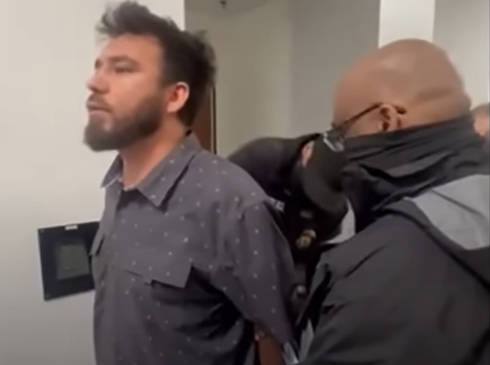How the Detention of Sayed Naser Exposes America’s Broken Promise to Its Wartime Allies
When the United States needed help, Sayed Naser answered the call. As an Afghan interpreter and contractor, Naser risked everything to support American military operations in Afghanistan. After fleeing threats from the Taliban and enduring a perilous journey to the United States, he followed every legal step to secure protection. Now, detained by ICE despite his service, his situation questions America’s commitment to those who risk their lives for the nation. This story not only highlights one man’s desperate plight but also signals a broader failure to protect the very people who helped secure U.S. interests abroad.
Who Is Sayed Naser? The Man Behind the Headlines
Service and Sacrifice
From 2015 to 2018, Sayed Naser worked as a civilian interpreter and logistics contractor for U.S. troops in Afghanistan. His role involved translating for soldiers and coordinating logistics to neutralize explosive threats, tasks that placed him squarely in the crosshairs of the Taliban. His courageous service made him a marked man; after the U.S. withdrawal, his family was targeted. His brother was killed, his father kidnapped by insurgents, and his wife and children forced into hiding. Naser’s sacrifices exemplify the risks countless Afghan allies face when they support U.S. operations.
The Journey to America
When the Taliban closed in, Naser’s only option was to flee. His escape took him from Afghanistan to Brazil, through the treacherous Darién Gap, and finally across Mexico to the United States. In 2024, he entered the U.S. legally at the San Ysidro port using a process designed to help vulnerable migrants. Despite applying for asylum and having a pending Special Immigrant Visa (SIV) application meant to honor his service, Naser now finds himself detained—a stark contrast to the promise of safety he was once given.
Outrage and Danger: Why Naser’s Detention Is a National Scandal
A Broken Promise
The detainment of someone who risked his life for the U.S. stands as a betrayal of American values. ICE officials claimed Naser’s case was “improvidently issued,” a vague dismissal that bypasses due process. Veterans and advocacy groups decry this explanation. One representative from Unite for Veterans stated, “They are our teammates, our fellow soldiers, and abandoning them undermines the values we stand for.” This treatment not only shatters trust but also places lives at imminent risk.
The Real Risks
The consequences for Naser are dire. Having already suffered losses and threats from the Taliban, returning to his former life is not an option. Deportation could lead to torture or execution. His case mirrors those of over 100,000 Afghan allies left behind in the tumultuous wake of America’s withdrawal. Thousands still face similar dangers every day, trapped by bureaucratic backlogs and policy failures that leave them unprotected in an unforgiving environment.
The Systemic Failure: How U.S. Policy Is Leaving Allies Behind
The SIV Program and Its Shortcomings
The Special Immigrant Visa (SIV) program was established to offer Afghan allies a pathway to safety. However, as of 2025, more than 200,000 applicants remain stuck in a bureaucratic limbo. Delays, policy rollbacks, and newly imposed travel bans—such as the 2025 travel restrictions limiting entry for Afghan nationals—have rendered the system almost inoperative. Requirements like DNA verification for family ties, impractical given Afghanistan’s current infrastructure, have further marginalized those already in dire straits.
Advocacy and Legislative Inaction
Despite passionate pleas from veterans and humanitarian organizations, meaningful reform remains elusive. Advocacy groups like #AfghanEvac and Save Our Allies report that dismantling programs such as the Coordinator for Afghan Relocation Efforts has compounded the crisis. Lawmakers continue to promise action, yet the systemic flaws persist. As veterans like James Seddon warn, “During the next war, potential allies will be watching; how we treat those who served with us today defines our future.”
The Human Toll: Stories Beyond Naser
Voices from the Front Lines
Sayed Naser is not an isolated case. Other Afghan interpreters and contractors face similar plights. Aziz, another interpreter, was once rescued by a U.S. Marine veteran who remarked, “These Afghan allies have shown more patriotic courage than many of our citizens.” For some, such as a paratrooper from the 82nd Airborne, the struggle is even more personal—he continues to fight for his sister’s safe resettlement after she was left behind. These personal stories underline the high human cost of neglecting America’s commitments.
The Emotional Cost
Families suffer immensely. Children grow up in the shadow of uncertainty while relatives struggle to maintain connections across borders. Veterans themselves are haunted by the fact that those who walked into harm’s way with them are now abandoned by the very government they served. Daniel Elkins, CEO of the Special Operations Association of America, poignantly stated, “Without the sacrifices of these Afghan allies, many more American lives would have been lost.” Their stories add a critical human dimension to this policy failure.
ICE’s Perspective and the Counterarguments
Official Justifications
ICE and DHS justify detentions like Naser’s on several grounds. Officials point out that Naser entered the U.S. using expedited processes via the CBP One app, which some critics argue bypassed thorough vetting. Additionally, his temporary parole was revoked on procedural grounds, labeling his entry as “improvidently issued.” ICE asserts that under the Immigration and Nationality Act, detaining individuals for additional scrutiny helps maintain national security and the integrity of the immigration system.
The Flaws in the Official Rationale
Despite these assertions, the justifications ring hollow. Naser’s service and the vetting he underwent alongside U.S. troops question the necessity of his detention. Critics argue that enforcing stringent immigration quotas and revoking parole in such cases betrays the humanitarian obligations the U.S. has toward its wartime allies. The rigid adherence to technicalities over compassion not only jeopardizes lives but also damages America’s long-term credibility.
What Needs to Change: A Call to Action
Honor the Promise
The credibility of U.S. foreign policy hangs in the balance. If America neglects those who risked everything to help her, future alliances may crumble. The government must urgently reform the SIV process, halt arbitrary detentions, and re-establish the resettlement programs that once embodied the nation’s commitment to its allies.
How You Can Help
Our collective voice matters. Contact your local legislators and demand accountability. Support advocacy organizations like #AfghanEvac and Save Our Allies in their efforts to reform U.S. immigration and refugee policies. Share these stories widely. By standing together, we can honor the sacrifices of Afghan allies like Sayed Naser and secure a safer future for all who come to our aid.
Sayed Naser’s detention is not merely an isolated incident—it is a critical test of U.S. promise and principle. His story challenges us to reflect on the values that bind our nation and to act decisively before more lives are imperiled. Will we stand by and let our wartime allies be abandoned, or will we rise to the occasion and reaffirm the commitment that our service members so earnestly deserve? The time for decisive action is now.




